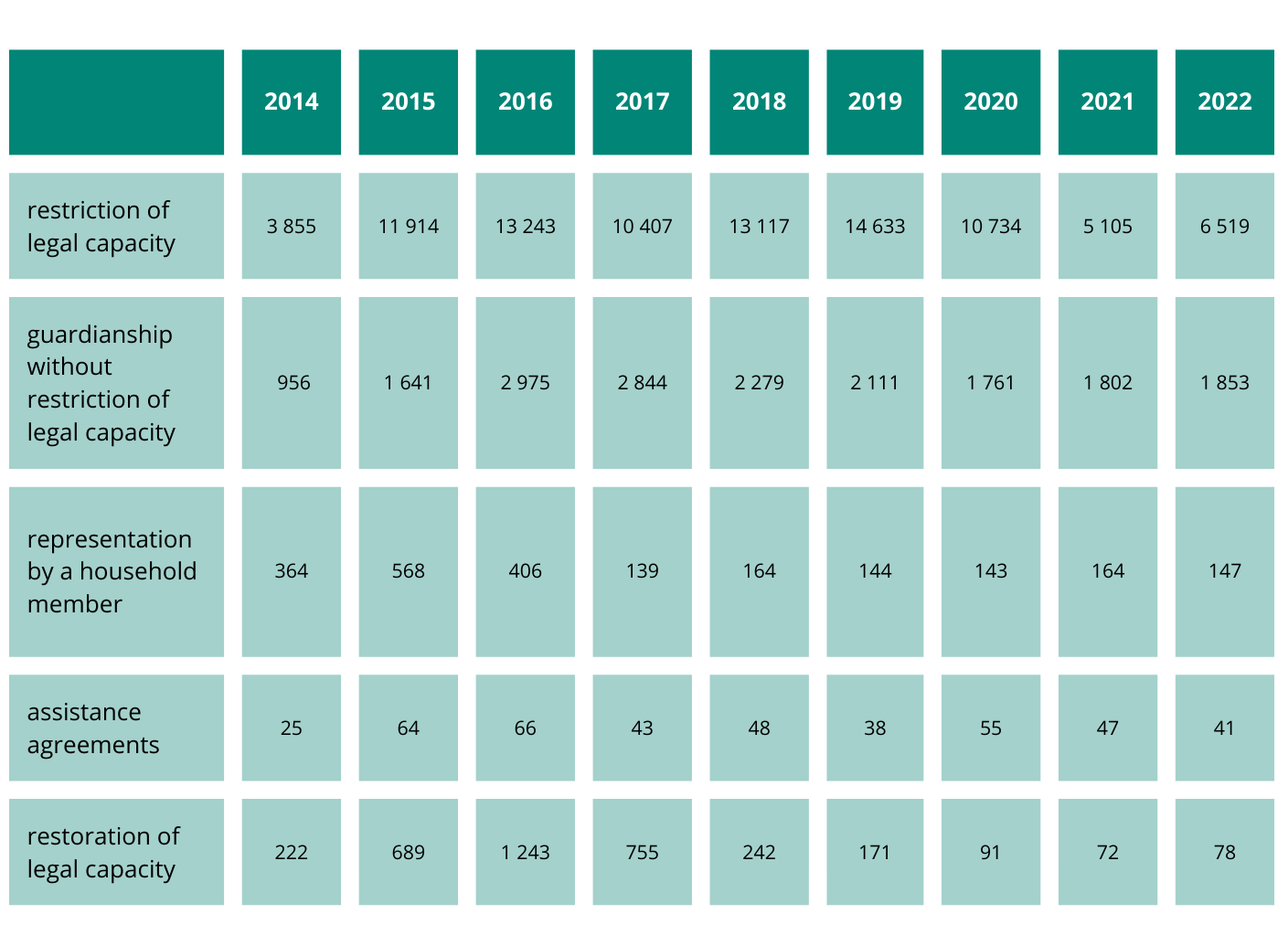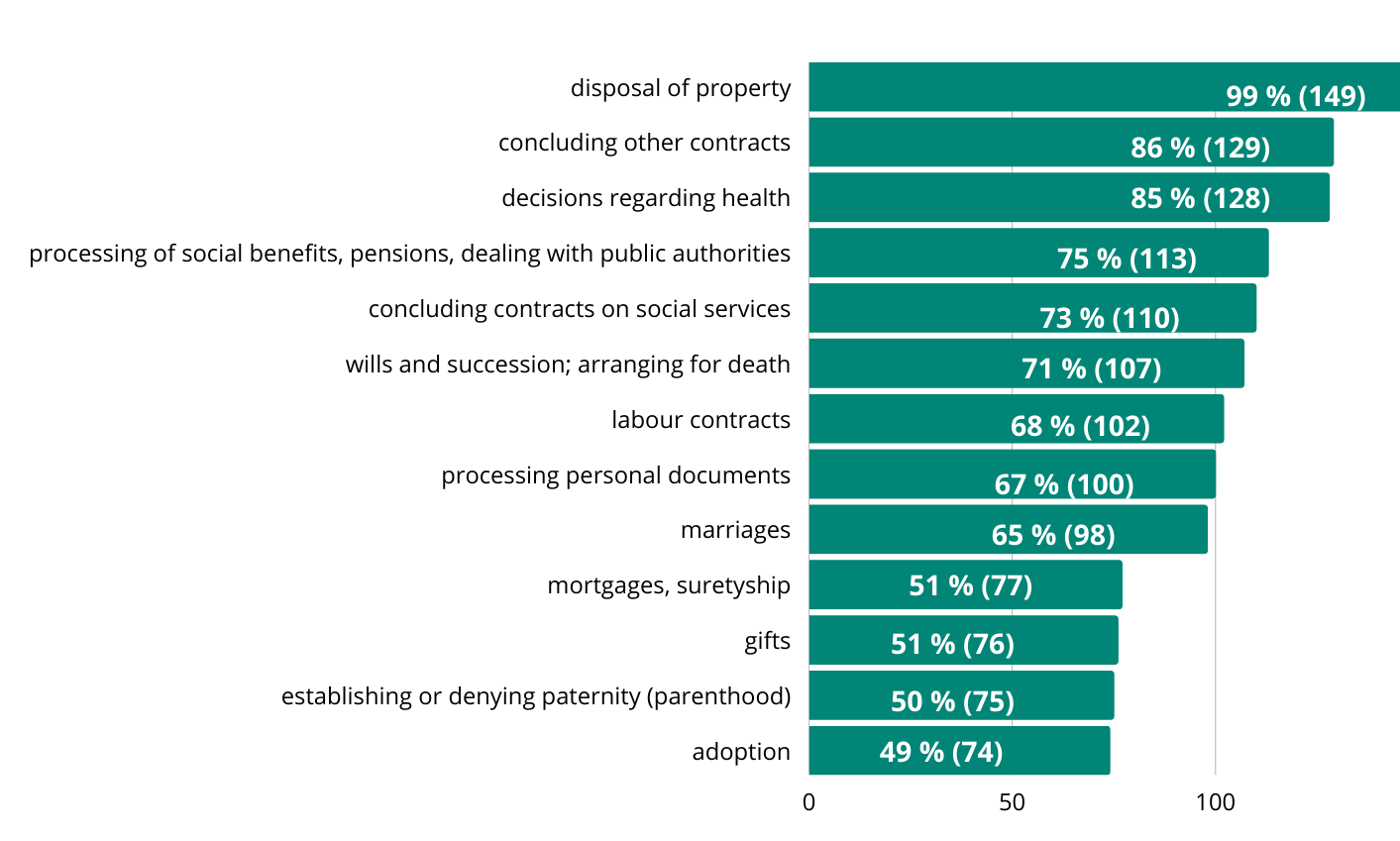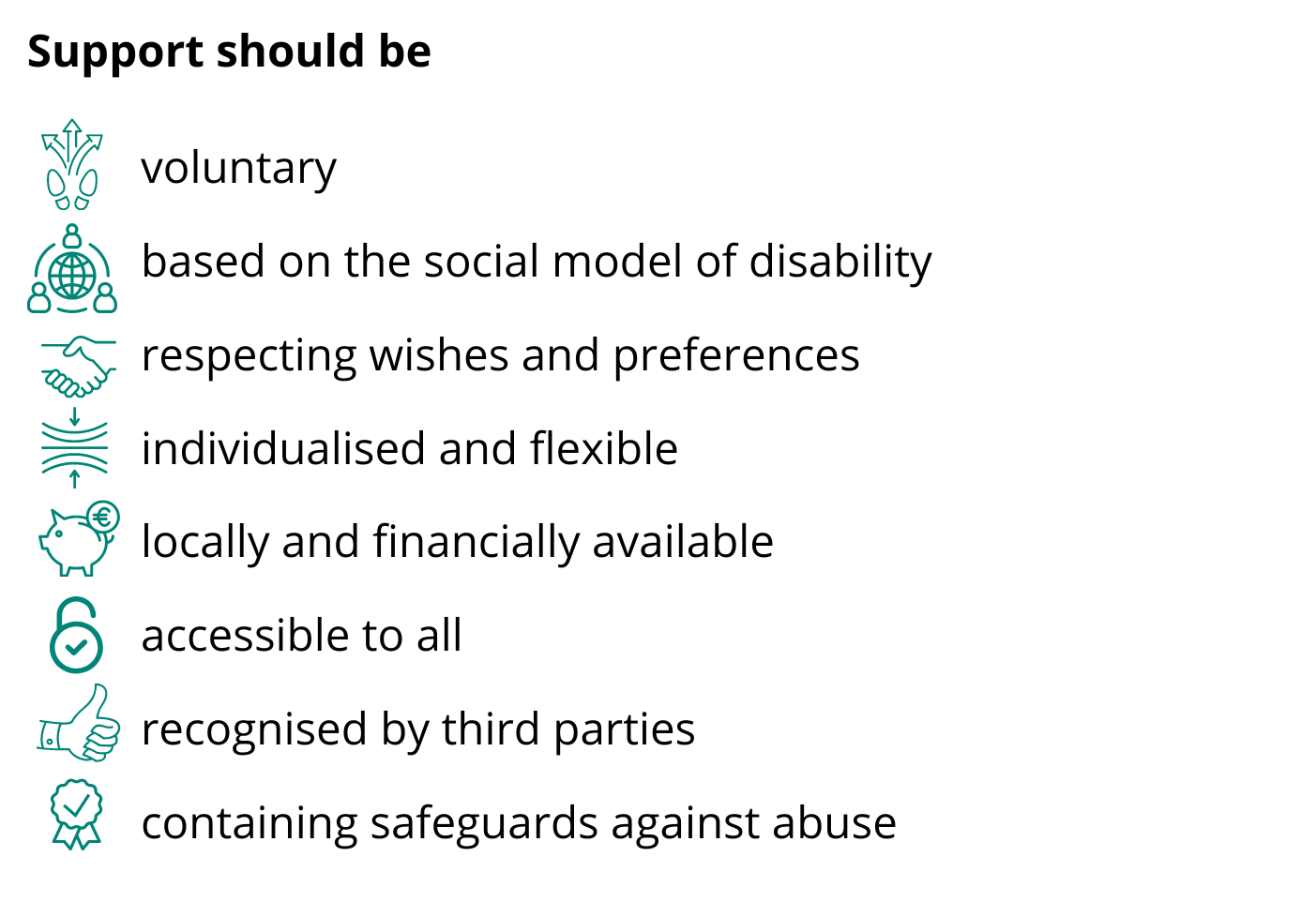Published on July 3, 2023
Czech Ombudsman´s Advisory Body: Thousands of people with disabilities lack full legal capacity in violation with the UN Convention on the Rights of Persons with Disabilities
The Ombudsman's Advisory Body for people with disabilities is alarmed about the large number of people with disabilities in the Czech Republic restricted in their legal capacity. Members of the advisory body expressed their concern during their June session. As Ombudsman's research shows, the courts in the Czech Republic still prefer restrictions of legal capacity to other forms of support. People with restricted legal capacity cannot make independent decisions in important areas of their lives. For example, they cannot freely manage their own property, make decisions about their health, marry or vote. This is contrary to Article 12 of the UN Convention on the Rights of Persons with Disabilities. The UN Committee has previously criticized the new Czech legislation which continues to allow for restrictions of legal capacity.
Members of the Advisory Body agreed that public awareness regarding the new support measures is insufficient. They therefore called on the Ombudsman to give guidance to public authorities involved in decision-making on support measures to comply with obligations under article 12 of UN CRPD. At the same time, the members themselves undertook to disseminate information on the possibilities of legal support that does not lead to interference with a person's autonomy and legal capacity.
"Courts still largely resort to invasive restriction of legal capacity, even though this practice is now considered a violation of human rights. Judicial interference with legal capacity has been abolished by a number of countries in recent years, including Austria, Germany, Spain and, most recently, Mexico. The Czech Republic has adopted a new legislation in 2014, which recognises other ways of supporting people with intellectual or psychosocial disabilities that are more informal, flexible and respectful of free choice. One example is assistance contract, where a person is assisted in legal proceedings by a so-called supporter. However, this institution is very little used, with only around 50 supported decision-making agreements approved by the courts each year, while at the same time up to 10,000 people are restricted in their legal capacity each year," the Deputy Ombudsman Vít Alexander Schorm explains.
Self-advocates - the husband and wife Kamila and Jaroslav Ježek, who have gone through the process of restriction of their legal capacity and its restoration - also praise supported decision-making by means of assistance contract. Both were restricted in their legal capacity soon after moving into a social care institution. "The staff at the home told me that I was no longer in charge and they just restricted me. They didn't explain anything to me, they basically didn't say anything. I didn’t know to what extent I am restricted," Kamila said. She met her future husband at the institution. "When I came to the home, I had full legal capacity. After a week, I was restricted, although I hadn't done anything. They were not interested in my opinion. It was best for them to restrict everyone´s legal capacity, to make it easier for them."
They have unpleasant memories about the time when they were restricted in legal capacity. "When I asked for money, I had to beg the municipality for every penny. They tried to prevent us from seeing each other with Kaja. It was really terrible there," Jaroslav recalls, and his wife perceives the lack of freedom in handling her own money in the same way. „I was getting care allowance, but it was taken away from me, nobody told me anything. We only received 50 crowns (approx. 2€) a month as pocket money."
After regaining their legal capacity, the couple now lives independently in their own apartment. With the help of an assistant, they manage even difficult situations regarding their family budget. "I think that guardianship should be abolished. It's stupid for a person to be incapacitated when he could manage with an assistant," Jaroslav concludes, and his wife nods in agreement: „When you have a guardian, all you get are prohibitions - you can't do this, you can't do that. But with an assistant, you are always able to come to an agreement. We would like our friends to have assistance too, so they can take care of themselves and not be restricted in their legal capacity."
The Ombudsman appealed to the Government as early as 2021 to bring forward a bill to comprehensively regulate support measures and to designate of a central authority responsible for this area (see page 11 of the Ombudsman's Annual Report 2021 for more information).
Courts prefer restrictions of legal capacity to other forms of support
 Restrictions of legal capacity affect many areas of life
Restrictions of legal capacity affect many areas of life

 The Czech Parliament has appointed the Ombudsman as a monitoring body for implementation of the UN Convention on the Rights of Persons with Disabilities in the Czech Republic in 2018. Since then, the Ombudsman conducts inquiries and draws up recommendations to improve the situation of people with disabilities.
The Czech Parliament has appointed the Ombudsman as a monitoring body for implementation of the UN Convention on the Rights of Persons with Disabilities in the Czech Republic in 2018. Since then, the Ombudsman conducts inquiries and draws up recommendations to improve the situation of people with disabilities.
The Ombudsman has an advisory body composed of people with disabilities and disability advocates. The role of the advisory body is to look out for systemic problems, assist in setting priorities and making recommendations, and identify issues that need to be addressed in the area of the rights of people with disabilities. The Advisory Body also ensures that people with disabilities are kept informed of the Ombudsman’s activities.
In 2015, Czech Republic report on implementation of the UN CRPD was assessed by the UN Committee on the Rights of Persons with Disabilities. In their concluding observations, the UN body has expressed their concern that the new Czech Civil Code still provides for the possibility of limiting a person’s legal capacity and placing a person with a disability under partial guardianship. The Committee called upon the Czech Government to amend the law and fully harmonize its provisions with article 12 of the Convention, i.e. to recognize the full legal capacity of all persons with all types of disability and improve access to supported decision-making.
